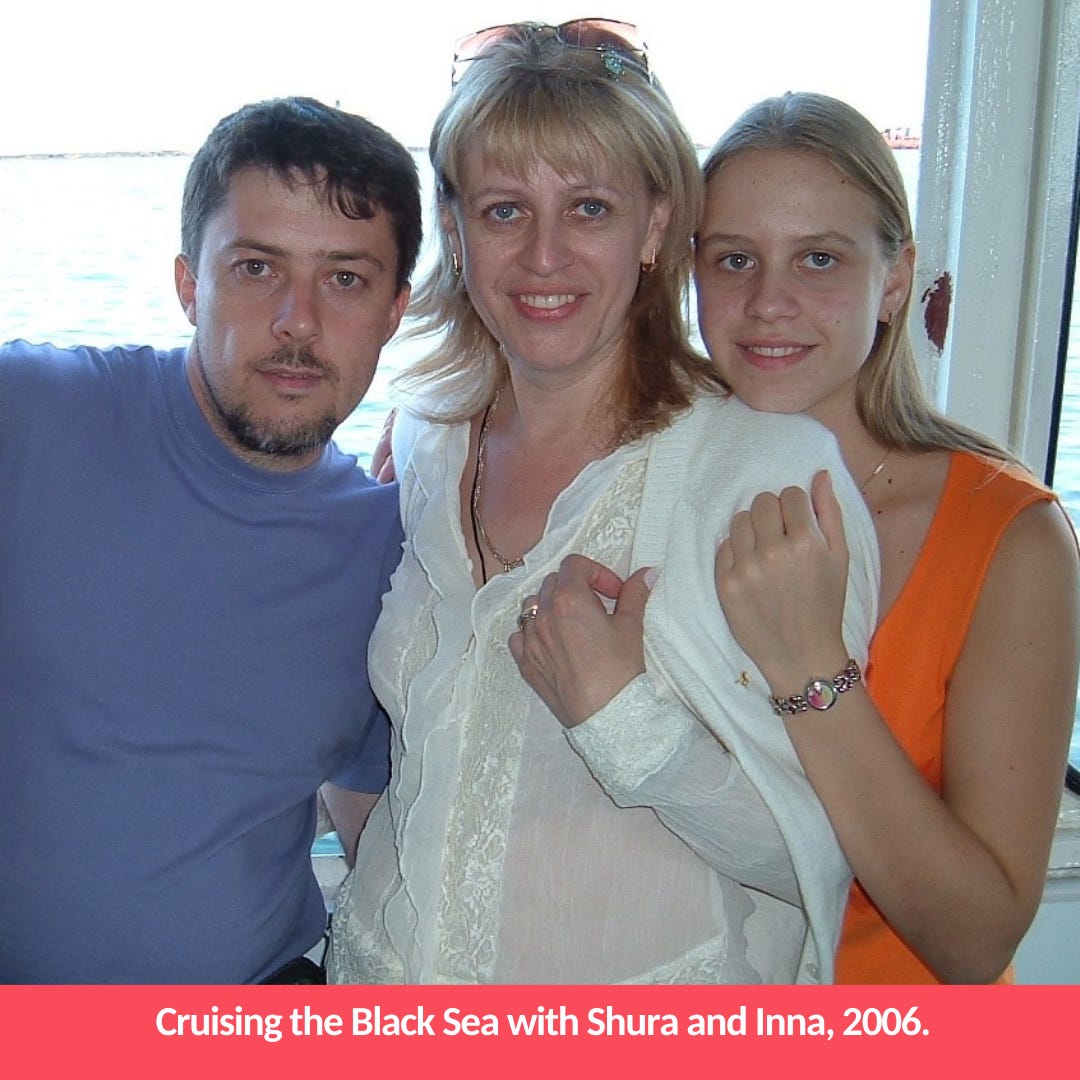My cousin Shura was very gifted at making things. She made a delicious pork loin. And I loved her mamaliga—it’s a kind of polenta from Moldova, where she grew up. She made warm, woolly socks, and creatures out of yarn. That all sounds so cozy and domesticated, but that’s not really how Shura was. She was larger than life. To me she was almost mythical.
The first time my parents brought me from our home in Odessa, Ukraine, to Moldova, I was 4 and she was 13. Her father was not in the picture, and she and her mother lived with my grandparents and uncle in a crowded apartment in Chisinau. My grandfather, who’d spent eight years in a Siberian labor camp, ran a tight ship. But now suddenly she had this watermelon-headed little brother! That’s how we thought of ourselves: sister and brother.
One of my earliest memories of Shura is her recording my voice. I had a speech impediment as a kid, so I made my r’s in a funny way. Shura loved it! She’d have me recite all kinds of rhymes—like the one about a little fly who finds a little coin and so she buys herself a samovar and invites all her fellow bugs to the party—and she’d record me on one of those old reel-to-reels. It was hard to find those in the Soviet Union, but Shura somehow always knew how to get things.
She had the spirit of an entrepreneur. She was from another world. When we were older, she’d be making some deal to sell candy from Bucharest. Bucharest, I know, but to us, at the time, it was like Paris.
The Soviet Union fell. Shura fell in love and got married. She got the idea that both her husband and I should enter the American green card lottery. We did, and we both won.
But by then Shura had a little daughter, and she was smart enough to know they’d be better off in Western Europe, where there were more social programs. So they emigrated to Germany and I went to the United States, where I would never have gone if not for Shura, but it’s my home now. She made me an American. The last time I saw her in person was 2006, in Odessa, when we took a cruise on the Black Sea. Ten years later, she was dead from ovarian cancer.
Shura made this finger puppet when her daughter, Inna, was small, and Inna had the idea to send it to me. It’s Ded Moroz, the Russian version of Santa Claus, and though he needs some moustache wax, he is very tough indeed. Maybe I should send him back to Inna, who gave birth to a baby girl of her own last month. She must miss her mother now. I know I do.
—Alex Solodovnikov





